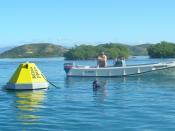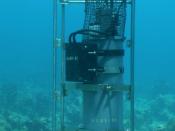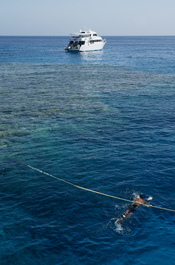2
1
Cespedes
Jacqueline Cespedes
Professor Bower
Marine Bio 16
26 November 2013
Ocean Acidification - Possible effects on Coral Reefs:
Carbon Dioxide, a naturally occurring gas in our atmosphere, is the sustainability of all life on Earth. Virtually every living thing on this planet uses Carbon dioxide for survival. Marine plants use it as food in the form of photosynthesis and also in the process of calcification of marine skeletons. So why have rising levels of CO2 become potentially dangerous for our oceans and the ecosystems is sustains? I suppose in short you could say an excess of anything isn't healthy. When we began burning coal, oil, and gas, essentially pumping an exceeding amount of carbon dioxide gases into the atmosphere (about 22 million tons of CO2 daily) 1, there wasn't an understanding on the kind of environmental impact that it could have on our oceans acidity levels, and in turn how that would affect marine life.
Since the industrial revolution, the oceans acidity level could possibly double by the end of this century (by year 2100). 1 In an article written by Bryan Walsh (senior editor at TIME), he states:
"...As two new studies published yesterday (Aug 24th, 2013) in the journal Nature Climate Change shows, acidification will make the oceans much less hospitable to many forms of marine lifeâ¦."
This has become an increasing concern for the over all health of our Oceans. With most of the attention being taken up by the rising global temperatures, that taking a look at the changing chemistry of our oceans and it consequences has been overlooked.
Our Oceans absorb about a quarter of anthropogenic (human released) Carbon dioxide (CO2) emitted into the atmosphere 3, which has made the seawater more acidic at the surface, and possibly even at abyssal depths,


